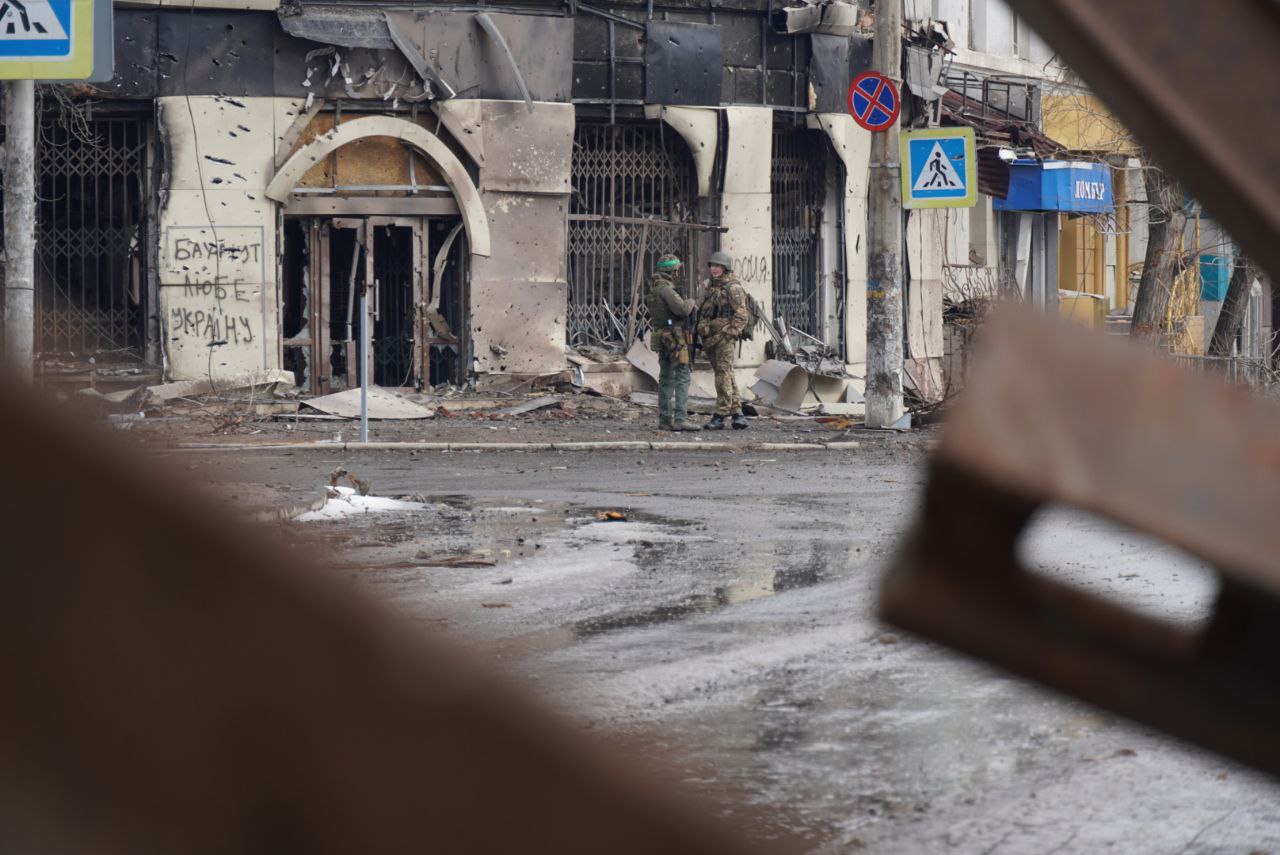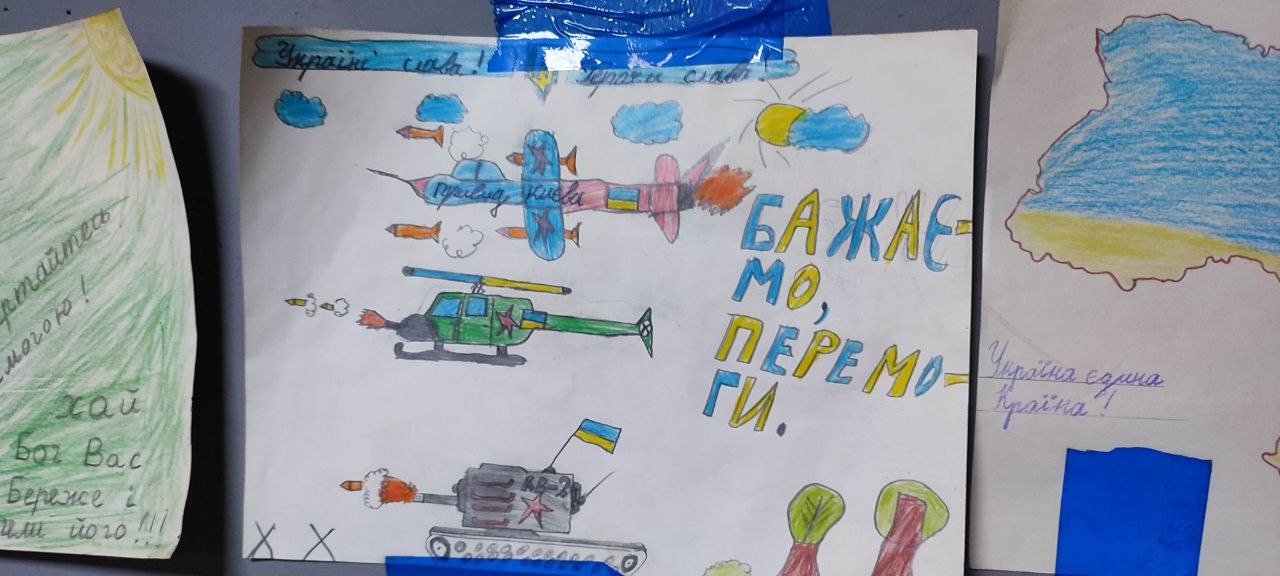I can’t talk about what will happen to Bakhmut, because I am an ordinary member and it’s not for me to make decisions about how, what and under what conditions will happen next. Bakhmut holds on and stands, most of the city is under the control of the Armed Forces of Ukraine. Yes, there are constant shellings in the city. Every 5–10 seconds either a shell or a mortar explodes closer or further. All this is interrupted from time to time by automatic and machine gun bursts.
Up to several thousand people remain in Bakhmut, these are women and children, including those who live in basements or surviving apartments, and this is pain and misfortune. There is no light, water and food here, except for what you can get from the military or police – they are still coming. I do not know how things are now – after the decision was made that children will be evicted even without the consent of their parents or guardians. But it is absolutely impossible to see adults dragging children along the bombed-out streets of Bakhmut.
Who are these people? These are the desperate, who, it seems to me, simply have nowhere to go. They are more afraid of change than of bullets and shells. Many of my friends, including myself, said: if I weren’t in the military, I wouldn’t even drive a hundred kilometers to Bakhmut, but these people stay there and find a million excuses: they say, some things remained here, we were born here, we remember every corner. For me, this is an inexplicable story, but it is. Of course, there is no work in Bakhmut, no one can earn money. There is no economy at all right now. The fact that you also keep your children and grandchildren with you, that amazes me. You do not understand the risk you are putting your children at risk, or you understand, but you still take this risk.
According to my feelings and what I heard from my comrades-in-arms, humanitarian aid has not been delivered in recent weeks. They are denied entry to Bakhmut, and the humanitarian aid that continues to arrive is what the military shares with the civilian population, that is, they actually give it from their dry rations and their stocks. Ammunition and food are brought in every day, although it depends on the brigade, and nevertheless, someone leaves for a couple of days to sleep off, wash things and then return, someone comes to the vacant place. There is constant rotation and movement.
It's always good when the occupier gets hit in the teeth and when his plans break off. They need to show at least some kind of victory, so they bit into Bakhmut, but to hell with them, not Bakhmut. Bakhmut is fettered by the huge forces of the invaders, but the losses of the attackers here are 5–7 times higher than the losses of the Ukrainian defenders.
Here, few people fight for days on the front line in the trenches. For days or for many hours, assault squads and those who find themselves in a situation where they are being pincered or surrounded are fighting. Fortunately, most of the fighters in Bakhmut and other sectors of the front can retreat to more or less calm positions. There is an opportunity to move away, the possibility of rotation. You can go out, relax, wash and change things. It is important to have a piece of a calm life, to change into warm and clean clothes when there is dirt, blood and destruction around.

The guys and girls who are now fighting for Ukraine are some of the most motivated people in the world. If you lose motivation, if you somehow relax or get lost, then everything is gone. And therefore, quite quickly, everyone learns to be collected, complete tasks and trust each other. This super-trust of people to each other is one of the main qualities that distinguishes Ukrainian fighters from most of all other people I know, especially in hot spots. There is such a common word – twins, and it is not common at the front and in Bakhmut. Here people trust each other, like brothers and sisters, like no one else, and fighters to each other, and commanders to fighters, and fighters to commanders. This is a real fighting brotherhood, united by a completely understandable common goal – to keep the enemy out and drive him as far as possible so that he forgets where he is and what his name is.

When they tried to take one of the groups of fighters into pincers, the guy received a gunshot wound to his leg. So, he will put a tourniquet on his own leg to stop the blood loss. All our fighters carry turnstiles with them, and I have only three with me. At the same time, some say to me: “Not enough, you have four limbs! Just in case, carry four!” So, this guy put on a tourniquet and continued the fight. Here you also need to understand that when you put a tourniquet on your leg, it loses its musculoskeletal function within a few minutes. This guy was crawling across the field, and his commander literally pushed him to the evacuation when combat medics approached and were able to drag him to the place where the car took him and sent him to pull out the bullet, sew up and treat the wound. This is just one of the stories that I myself observed, and there are tens of thousands of such stories. I wish there were fewer of them, so that we would win, drive this damned evil spirits from the Ukrainian land and live like a human being with the Ukrainian Crimea, Donbass, with the hostages and prisoners who returned home.
I meet very different guys here. For example, a young guy who is only 21, and looks to be 19 at all, but he is already a company commander, many of those whom he commands are two to two and a half times older than him. Somehow I was at his birthday party, and his colleagues somehow managed to get and bring a cake from Slavyansk or Kramatorsk! To a ruined city in which shelling and explosions do not stop, in which you lean out of the basement, and Russian drones immediately begin to graze you and point artillery and mortars at you – suddenly a cake. Real birthday.
Here I saw IT people, I saw a veterinarian girl, I saw a hereditary surgeon, I saw former dollar millionaires now sleeping in dirty basements (there are no clean ones here) and eating stew from a can with a knife. There are also guys who feed the soldiers, the main one, the army chef is a real chef who worked in some five-star hotel in Lvov. He knows how to cook the most complex and exquisite dishes, and he, too, decided that he could not stand aside. It seems to many – they say, just think, the cook has cooked, and that's it. But a cook in war is not only the one who cooks, he also delivers. Delivery of hot food in Bakhmut is such a small daily feat, because the delivery goes along the road, which is under constant fire from the occupiers.
Whether the city will be handed over is difficult to say, because there is very different information even inside Bakhmut. You talk to some soldiers, and they say that they are waiting for an order to retreat from hour to hour. Where do they get this feeling from? Well, that's what they seem to be. Did the commander say that? No, he didn't say anything like that. And two days later, other people say: “Why should we leave? We have good positions here, we grind the Russians one by one. Why should we leave such a place?”
We must also understand that these are real ruins. There was nothing left that could be of any strategic, military or logistical interest. The war is over the smoking ruins.
Watch the video report about the defense of Bakhmut here .
*Main photo shows A Ukrainian soldier walks along a street in Bakhmut, Donetsk region, Ukraine, Sunday, Feb. 12, 2023. Writing on the wall reads "Bakhmut loves Ukraine". AP Photo/Libkos


